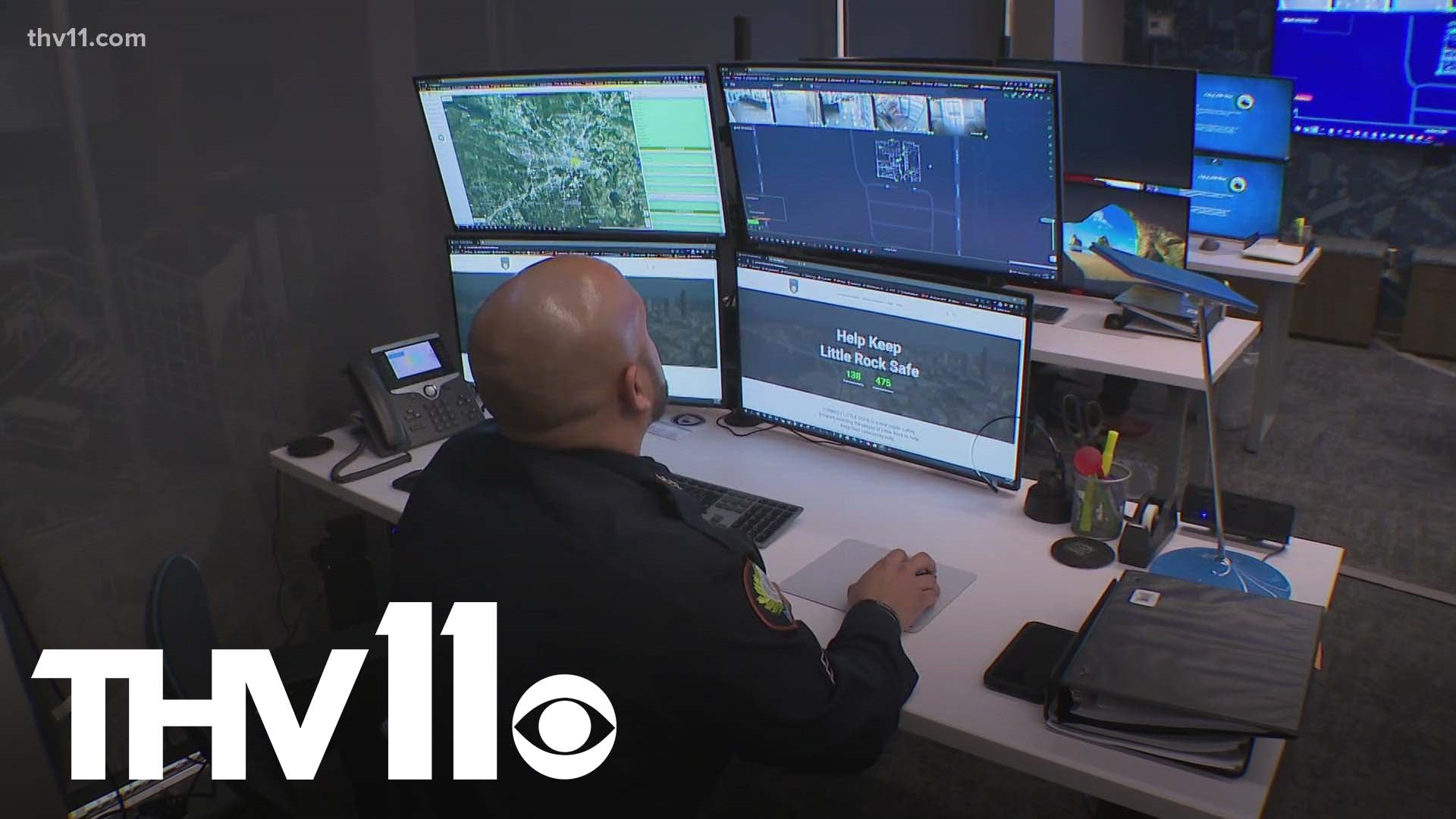LITTLE ROCK, Ark. — The Real Time Crime Center, a camera monitoring system first announced by the Little Rock Police Department over a year ago, has moved into its second phase— and they need the public's help.
"To give officers updated information that they wouldn't have otherwise, to get more efficient calls for service," LRPD Sgt. Troy Dillard said.
The goal of the center is to get a look at crime as it happens and to pass along information to officers before they arrive on the scene.
"It's really not just police," Major Ty Tyrell said. "You're always going to get a better emergency response if those first responders know ahead of time what they're getting into."
The system is based on similar networks in other states across the country and it operates by tapping into cameras in the city. Those could be preexisting traffic cameras or ones put up specifically for this.
While the camera network is critically important at the moment, it's just as impactful after a crime happens.
"Your system functions exactly the way it does," Tyrell said. "It's just a place where if we need to, we can go and get that video."
Using a box from Fusus, a software company that helps run centers like the one in Little Rock, businesses and citizens can give access to LRPD to connect to security cameras— you can also disconnect at any time.
Tyrell emphasized that there is no obligation to share video and it's only kept if it's determined that that video could help in an investigation.
"It's completely up to you," Tyrell said. "You can look at it, 'I don't care, I don't want to mess with it,' or you can help us out and send us the video."
Those boxes range from a couple hundred to a couple of thousand dollars for bigger camera systems, like in a business. You can learn more about them HERE.
"We've set a goal for ourselves of around 3,000 integrated cameras," Tyrell said.
According to Tyrell, it's not a "Big Brother" situation. He said they'll only watch cameras when they receive a call about something. He also recognized that it's hard to buy into a program as expansive as this, but said they need help to expand the program.
"That's where the power comes from, it's not the software, the detectives," Tyrell said. "It's all about us connecting with people out there and getting their support in an easy, convenient way that they're comfortable with."

